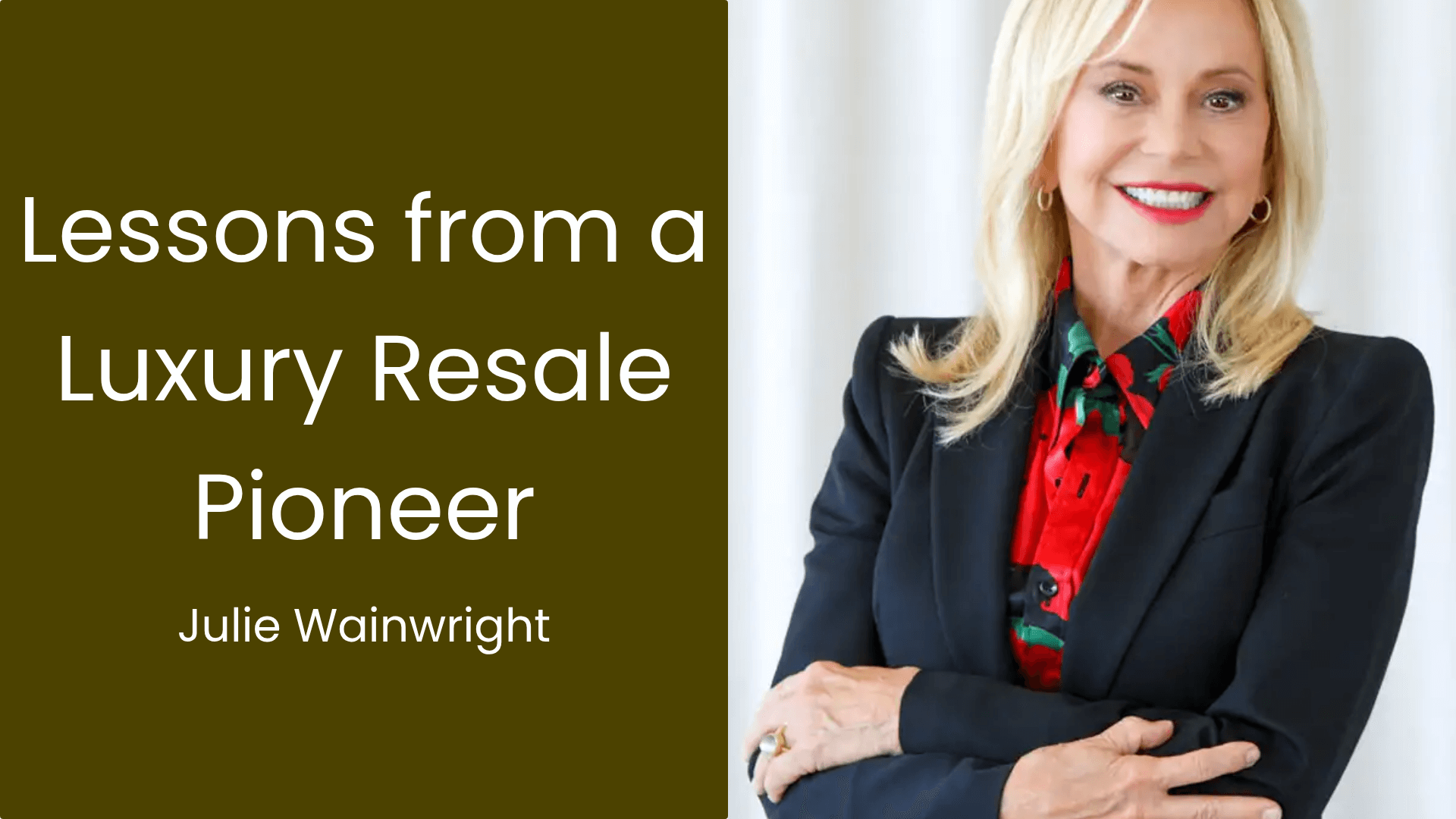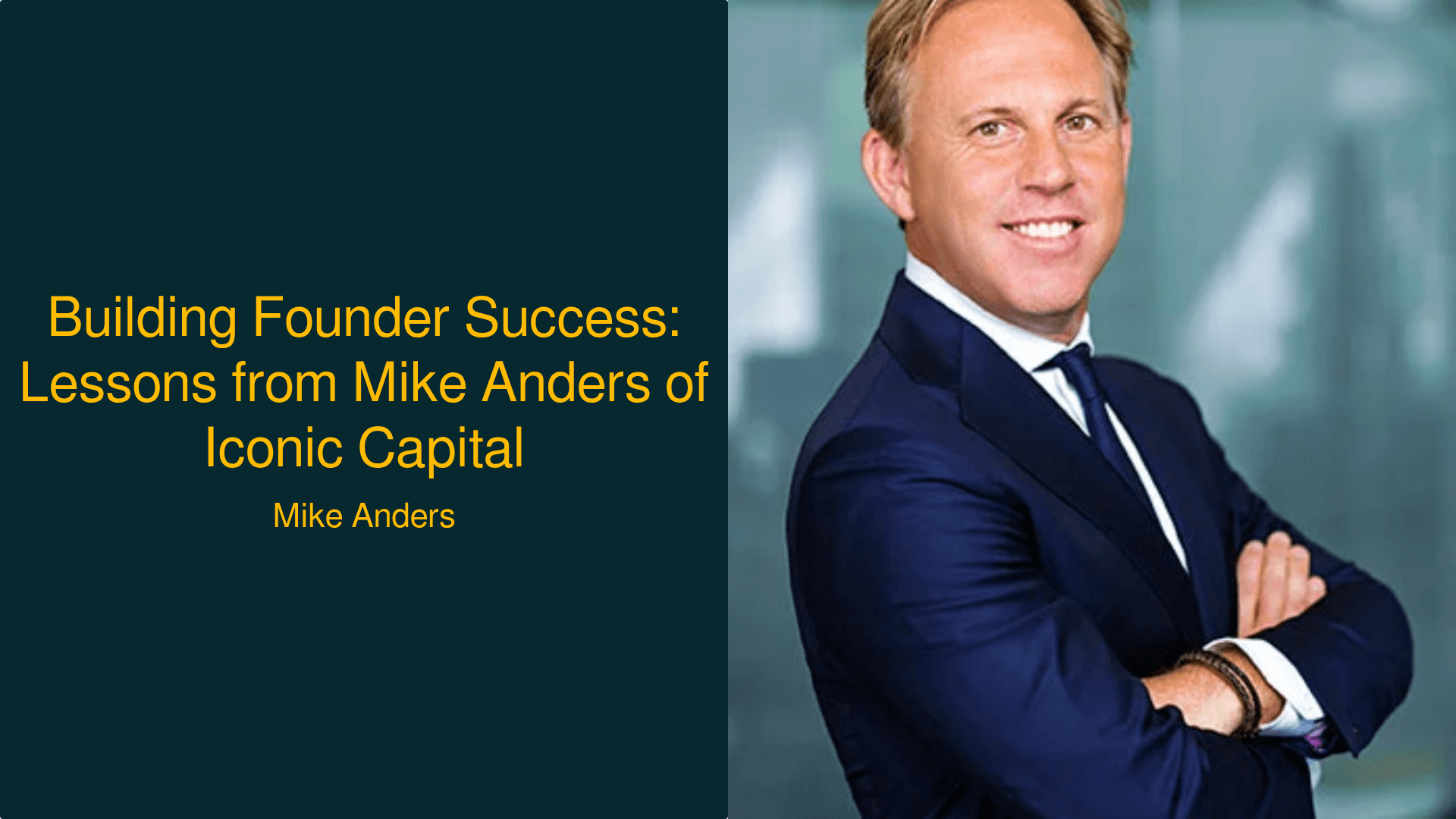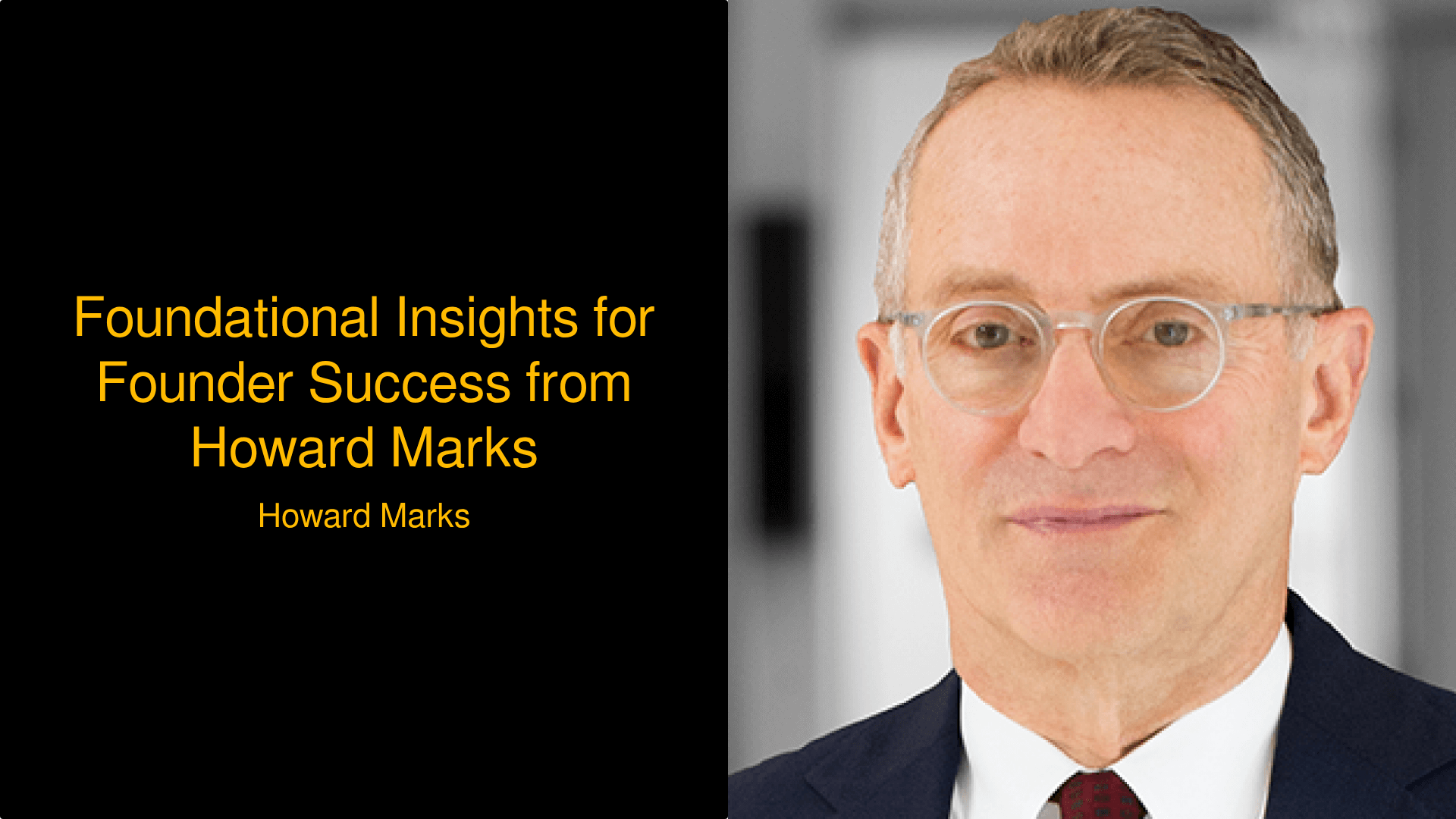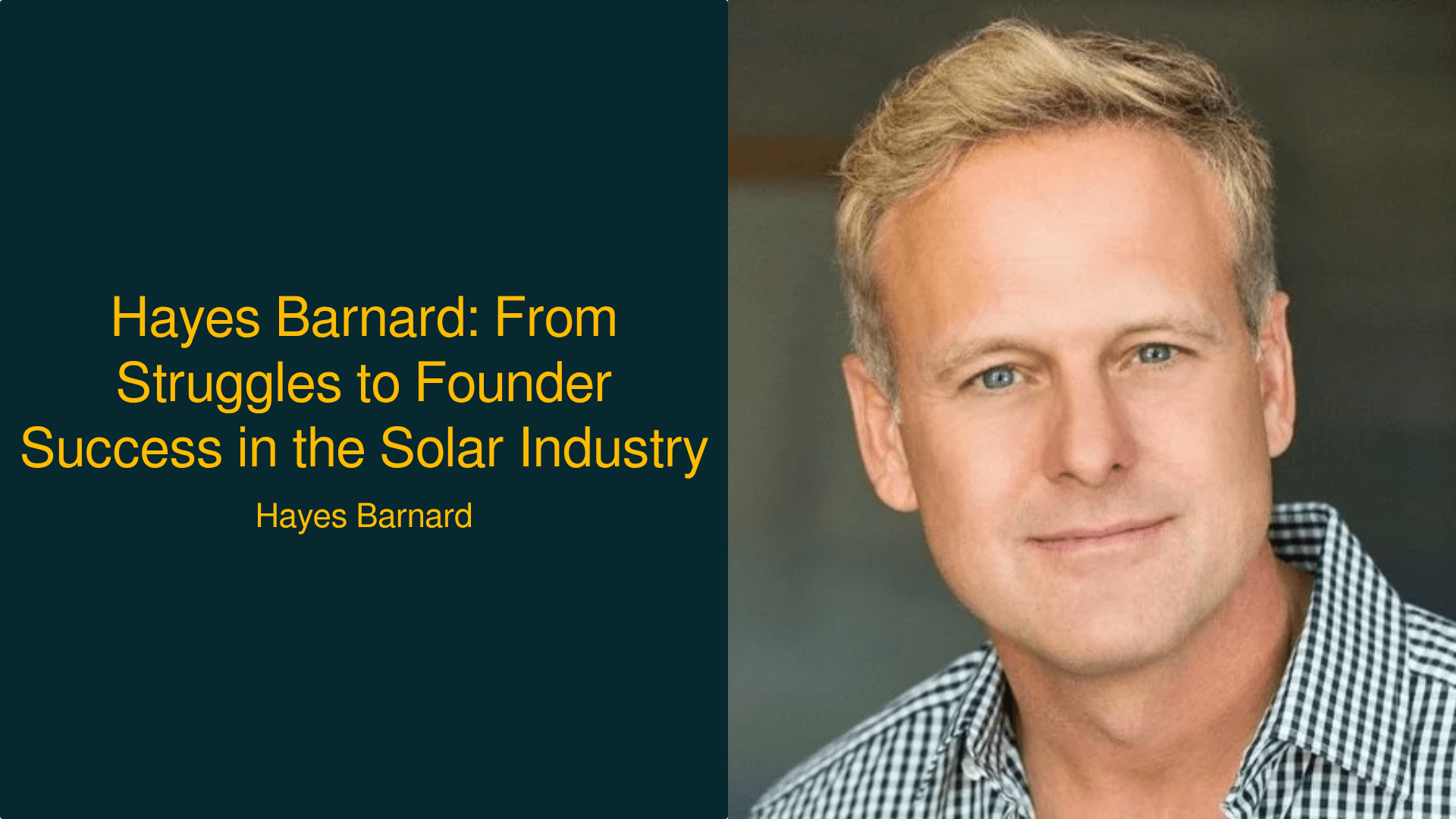Key Strategies for Founder Success with Julie Wainwright
Discover actionable insights from Julie Wainwright on founder success and navigating business challenges.

Key Strategies for Founder Success with Julie Wainwright
In the fast-paced world of entrepreneurship, the journey to founder success is often fraught with challenges and setbacks. Julie Wainwright, a pioneer in the luxury resale market, exemplifies the resilience and strategic thinking that can lead to remarkable achievements. After experiencing the highs of taking Pets.com public and the lows of its subsequent collapse, she reinvented herself and founded The RealReal, a luxury resale empire that has transformed the e-commerce landscape. In this article, we will delve into key insights from Julie’s journey, exploring actionable strategies for founders that can help navigate the complexities of building successful businesses. From embracing risk to understanding the importance of training and execution, these lessons are vital for anyone looking to thrive in today’s competitive market.
The Importance of Risk-Taking and Training
I’ve always wanted to understand how business operates from multifunctions. I’m a risk taker in my career and I’ve embraced technology from an early age. — Julie Wainwright
Why it matters: Taking calculated risks is essential for founders, especially in the early stages of their careers. Julie emphasizes the importance of combining risk-taking with solid training. Her experience at Clorox taught her the value of structured thinking and effective communication, which are crucial skills in any business. Founders must not only be willing to take risks but also equip themselves with the knowledge and skills necessary to make informed decisions. This combination can lead to more successful outcomes and a higher likelihood of navigating the ups and downs of entrepreneurship effectively.
How to Apply This
- Seek out structured training opportunities in your field to build foundational knowledge.
- Embrace technology and stay updated with industry trends to remain competitive.
- Assess risks carefully; weigh potential rewards against the likelihood of failure.
- Develop a network of mentors who can provide guidance and advice based on their experiences.
- Reflect on past experiences to learn from both successes and failures, using them to inform future decisions.
Navigating Failure and Building Resilience
I literally had to walk myself through all the successes I’d had, and was I really a failure or was it timing? — Julie Wainwright
Why it matters: Failure is an inevitable part of the entrepreneurial journey, and how founders respond to failure can significantly impact their future success. Julie’s experience with Pets.com taught her that failure does not define one’s capabilities. Instead, it offers valuable lessons that can inform better decision-making in the future. By building resilience and learning to navigate setbacks, founders can emerge stronger and more prepared for new challenges. This mindset shift is crucial for long-term success, as it allows entrepreneurs to take bold steps forward even after experiencing significant setbacks.
How to Apply This
- Acknowledge failures as learning opportunities rather than personal shortcomings.
- Create a reflection practice to analyze past experiences and extract valuable lessons.
- Surround yourself with a supportive network that encourages resilience and growth.
- Set specific goals for recovery and improvement after a setback.
- Maintain a positive mindset to foster creativity and innovation in problem-solving.
Execution: The Key to Turning Ideas into Reality
Ideas are great, but they’re really nothing if you don’t execute. — Julie Wainwright
Why it matters: Execution is where many entrepreneurs fall short. Julie highlights the importance of not just having a great idea, but also the ability to bring that idea to fruition through effective execution. This involves establishing clear processes, building a capable team, and ensuring that the resources are aligned to support the business objectives. Founders need to be vigilant and adaptable, constantly refining their strategies based on market feedback and operational realities to ensure success.
How to Apply This
- Develop a detailed action plan outlining steps needed to achieve your business goals.
- Assemble a team with complementary skills and a shared vision.
- Implement systems and processes that enable efficient operations and communication.
- Regularly review and adjust your strategies based on performance data and market trends.
- Foster a culture of accountability where team members own their tasks and responsibilities.
Building Trust and Authenticity in Business
Excellent authentication to build trust with the consumer was crucial. — Julie Wainwright
Why it matters: In the luxury resale market, trust is paramount. Julie emphasizes that establishing trust with consumers is essential for long-term success. This can be achieved through transparency, authenticity, and delivering consistent quality. Founders must prioritize building strong relationships with their customers, ensuring that their brand values align with customer expectations. By fostering trust, businesses can create loyal customer bases that are more likely to advocate for the brand and contribute to its growth.
How to Apply This
- Clearly communicate your brand values and mission to resonate with your audience.
- Implement quality control measures to ensure product authenticity and reliability.
- Engage with customers through social media and direct communication to build relationships.
- Be transparent about business practices, including sourcing and pricing.
- Collect and act on customer feedback to continuously improve the customer experience.
Scaling: Strategies for Sustainable Growth
Processes drive the scalability and it also in a weird way drives the innovation. — Julie Wainwright
Why it matters: Scaling a business effectively requires well-defined processes that allow for sustainable growth. Julie’s experience highlights that as companies grow, they must establish systems that can adapt to increasing demands while maintaining quality and service levels. This approach not only supports growth but also encourages innovation by allowing teams to focus on creative problem-solving rather than getting bogged down in inefficiencies. Founders must prioritize creating a scalable infrastructure that supports their vision and prepares their business for future challenges.
How to Apply This
- Identify key processes that can be streamlined or automated to improve efficiency.
- Set growth targets and develop a roadmap for achieving them through scalable strategies.
- Hire and train employees who are adaptable and can contribute to a culture of innovation.
- Monitor industry trends to stay ahead of competitors and anticipate market shifts.
- Regularly evaluate your operational structure to ensure it aligns with your growth objectives.
Conclusion
Julie Wainwright’s journey through the world of entrepreneurship offers invaluable lessons for aspiring founders. From embracing risk-taking to understanding the importance of training and execution, her insights provide a roadmap for achieving founder success. By focusing on building trust, fostering resilience, and establishing scalable processes, entrepreneurs can navigate the complexities of building successful businesses. Ultimately, the key takeaway is to trust in oneself and the vision one has for their business. As Julie aptly states, operating out of fear is always losing. By maintaining a positive mindset and being willing to learn from both successes and failures, founders can create sustainable and impactful ventures. As you embark on your own entrepreneurial journey, remember to embrace the challenges and trust in your ability to overcome them.


